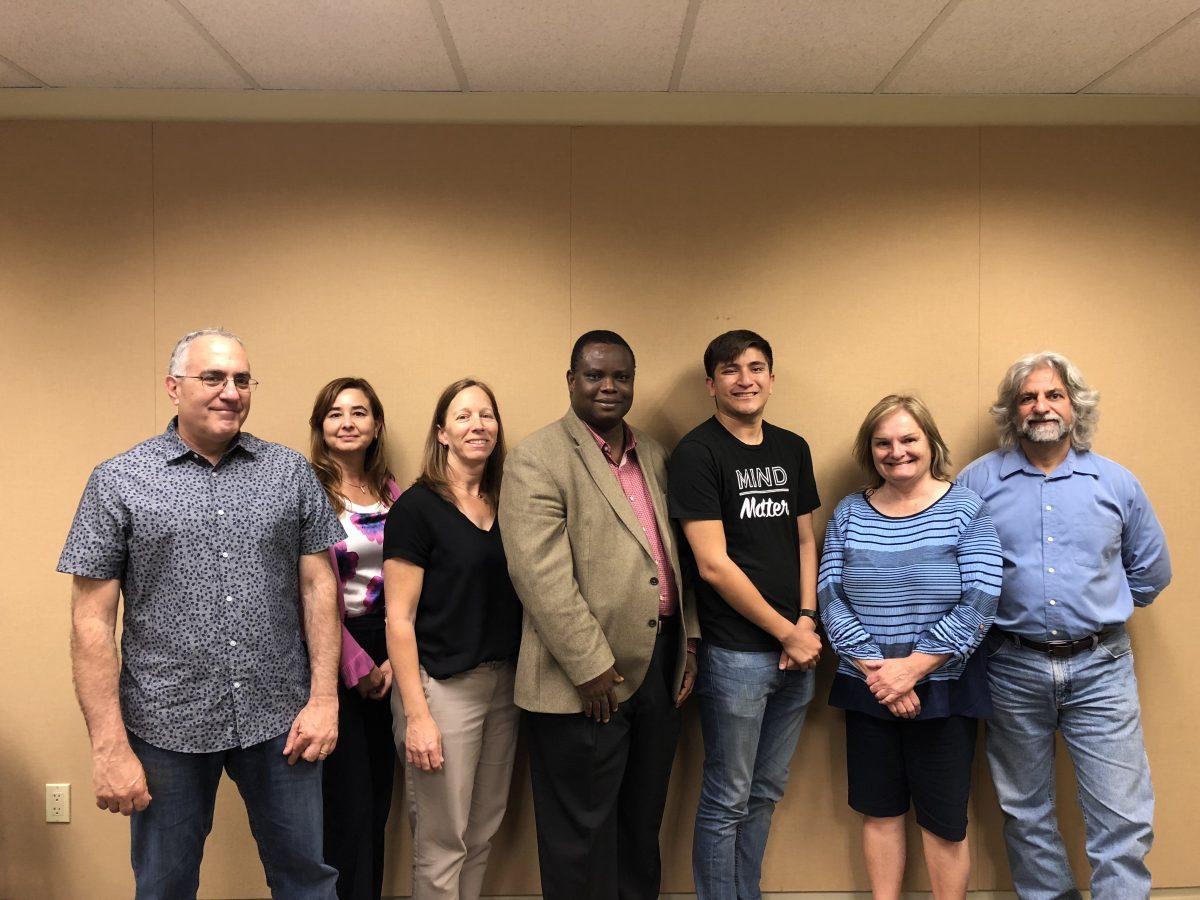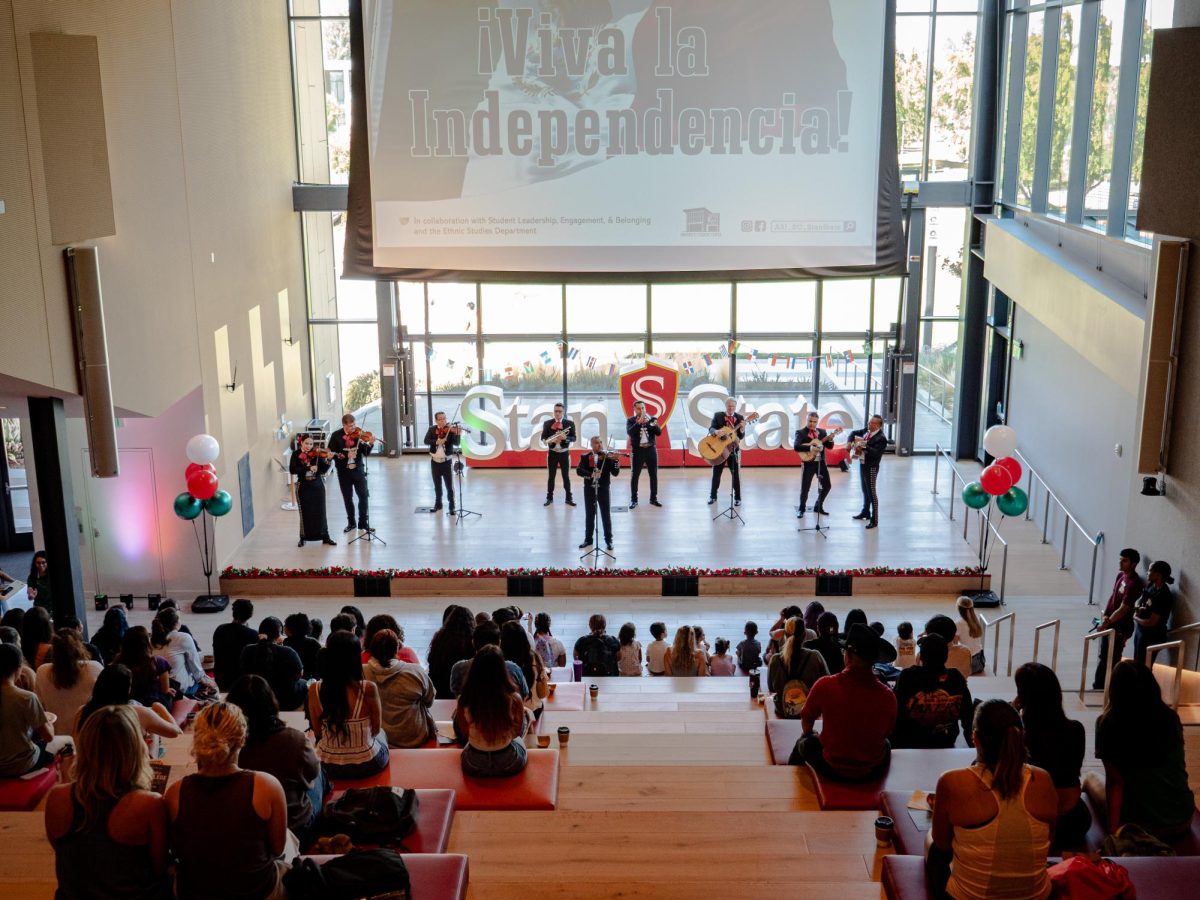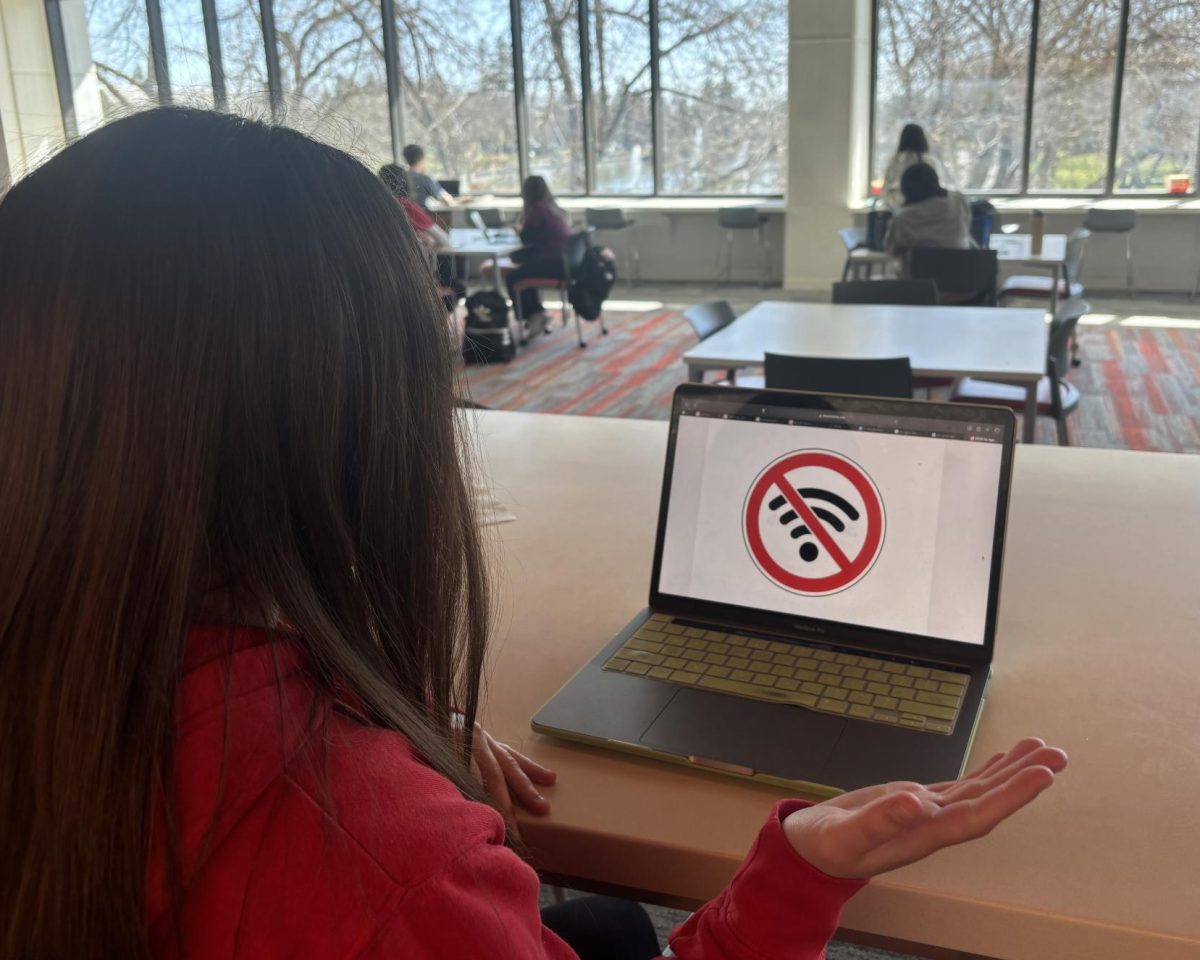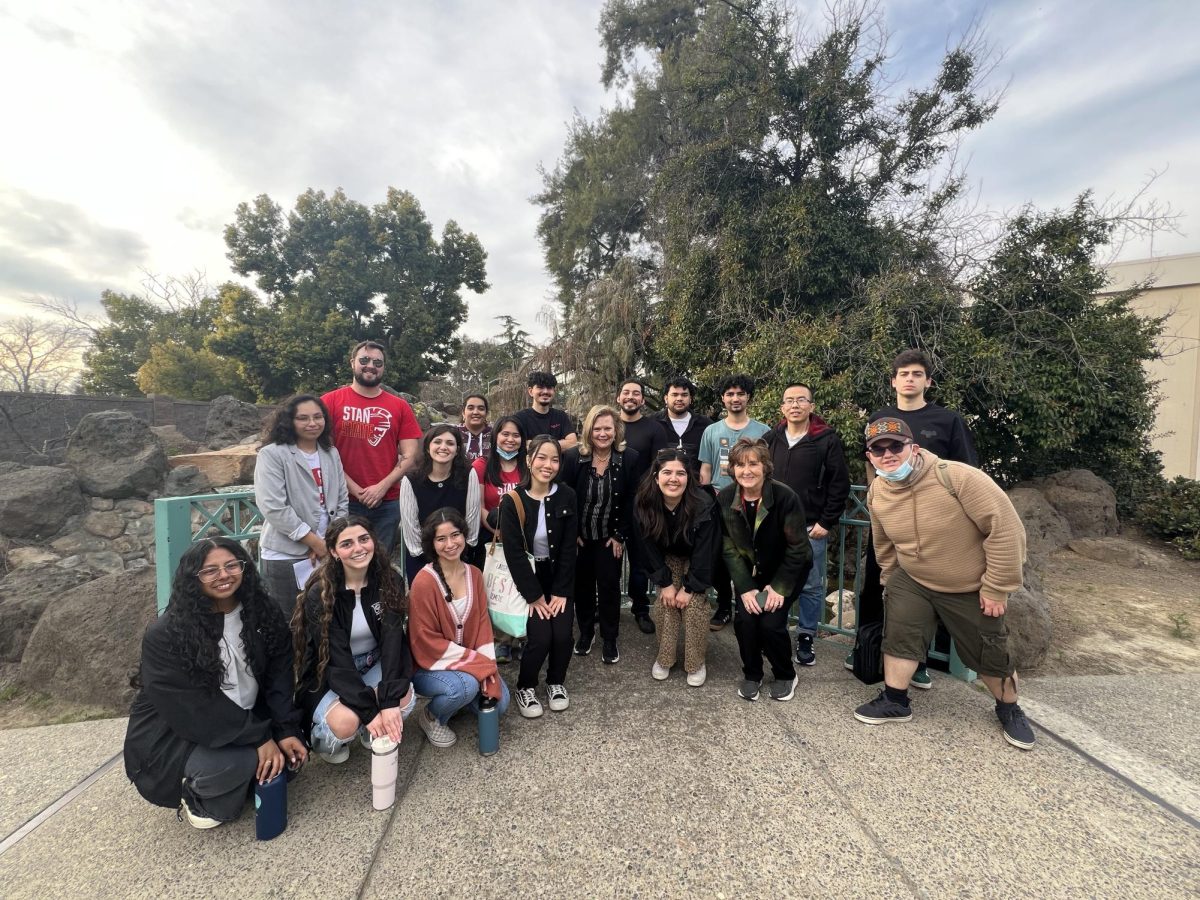The Committee for Sustainable Futures has been established on campus with the goal of increasing Stan State’s awareness and practice of sustainability.
Dr. Phil Garone (professor, History) is a member of the Committee for Sustainable Features. He explained what the committee is trying to do.
“This is going to be something that is intended to be ongoing and permanent, and it’s goal is to simultaneously raise awareness of sustainability among our students and faculty and staff on campus, and also to organize and promote sustainable activities around the campus,” said Dr. Garone.
The committee is made up of faculty, staff, administrators, and students who bring different perspectives to the table and are working together to reach this common goal.
The word “sustainable” is defined by Merriam-Webster as both “of, relating to, or being a method of harvesting or using a resource so that the resource is not depleted or permanently damaged” and “of or relating to a lifestyle involving the use of sustainable methods”.
Dr. Alison McNally (professor, Geography), explained that there are three main areas of sustainability.
“It has to do with equity, it has to do with environment, and it has to do with economics. So when people use the term sustainability, they’re kind of looking through those lenses,” said Dr. McNally.
An important part of the increasing sustainable practices on campus is gauging the campus community’s knowledge of and attitude toward sustainability. Dr Garone explained how the committee plans on doing so by distributing surveys.
“This year we created and distributed a sustainability survey questionnaire and sent it out to all faculty, staff, and administration to assess attitudes and to get a broad picture of what we’re doing and how people feel about it,” said Dr. Garone. “We’re currently designing a survey specifically for students, and we’ll be sending that out either very late in the semester or the beginning of fall semester.”
Garone indicated that students should keep an eye out for the survey, which plans “to see how engaged with sustainability students are, to see how aware of it they are, to see how much they know about what we’re doing on campus, to see what they’d like to see done.”
Julia Reynoso, (Facilities) explained the campus already has sustainable practices in place, but a facet of the committee’s goal is to raise awareness of these practices. “We just completed solar panels on top of the cafeteria, that hasn’t been highlighted very much,” said Reynoso.
Wendy Olmstead (Financial Services) explains,Part of involving the campus with sustainability includes incorporating the topic into class curriculum.
“It’s important to put sustainability into our curriculum as much as is practical and as much as faculty want to, and incorporate it into their courses because understanding sustainability through education is vital to being sustainable,” said Olmstead.
Dr Tony Perrello (professor, English) agreed with Olmstead.
“We want to expose students more than just in the classroom,” said Dr. Perrello. “We’re trying to get into people’s curriculum and see what people are teaching and try to encourage them to teach sustainability.”
The Committee of Sustainable Futures is hosting events and guest speakers to get the campus involved with sustainability.
On May 4, the committee will be hosting with the library a showing of DamNation, a documentary about dams in the United States.
“What I like about it is that they present this idea of dams as a functional part of our utility structure: We need to hold water, we need to prevent flooding, we need to store water, we need to irrigate,” said Dr. McNally. “But they raise the question of, are all dams necessary?”
McNally explained that the film follows the removal of a dam in Washington State. The dam was no longer needed for its intended purpose. When it was removed, the river’s ecosystem started to repair itself and connect to the ocean ecosystem.
“It’s very engaging, it’s a fun film to watch,” said McNally.
The committee also plans to host guest speaker, Tim Palmer on May 7.
“Tim is a nationally renowned conservationist, primarily about rivers, has published 25 books in his career and he’s going to be talking about his latest book, Wild and Scenic Rivers: An American Legacy,” said Dr. Garone, who explained the book is “being published to correspond to the 50th anniversary of the 1968 federal Wild and Scenic Rivers Act.”
Ultimately, it’s important to incorporate sustainable practices in a way that works for each individual person. Dr Austin Avwunudiogba (professor, Geography) explains how the documentary will create awareness.
“We are not only raising awareness, but we also want people to practice sustainability in their own little way. So for example, recycling, using less energy, reducing waste…both on campus and in our private endeavor,” said Dr. Avwunudiogba.
The DamNation movie night will be held May 4 at 5 p.m. in the Library Circulation Hall. Popcorn and drinks will be served. Tim Palmer will present Wild and Scenic Rivers: An American Legacy May 7, 7 p.m. in Bizzini Hall 102.
More information on the Committee for Sustainable Futures can be found at csustan.edu/sustainability.







